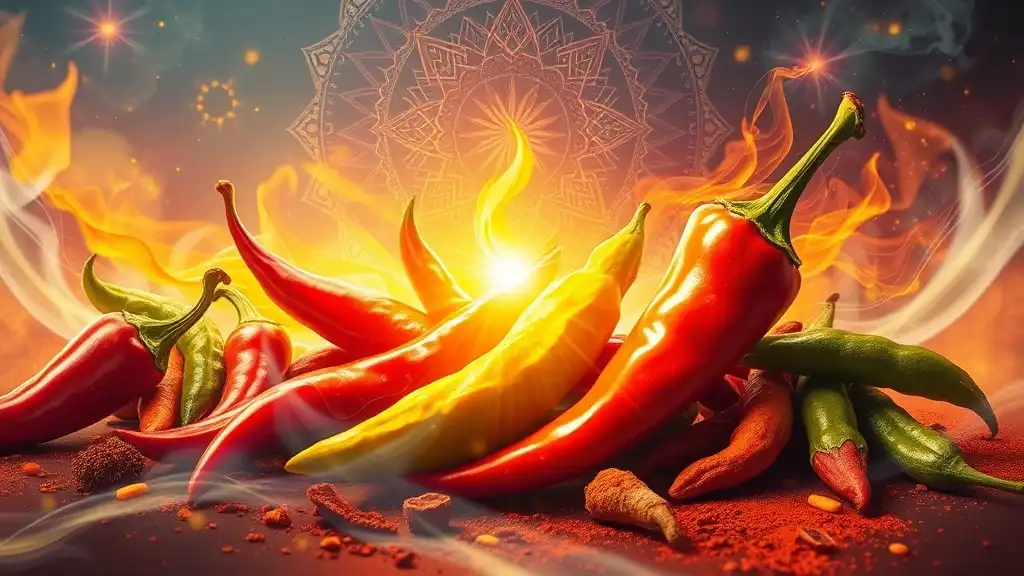Herbs and spices have long been revered not only for their culinary delights but also for their profound spiritual meanings. They possess unique energies that can enhance our physical, emotional, and spiritual well-being. Within various cultures and traditions, these natural elements have been used as tools for healing, cleansing, and connecting with the divine. This exploration into the spiritual significance of herbs and spices invites us to deepen our practices and elevate our consciousness.
Understanding Herbs and Spices
What are Herbs?
Herbs are typically defined as the leafy green parts of plants, valued primarily for their flavor and fragrance. They can be used fresh or dried and are often incorporated into daily diets for both culinary and medicinal purposes. Common herbs like basil, thyme, and mint not only elevate the taste of dishes but also embody distinctive spiritual qualities. Many people believe that herbs carry energies that promote healing, peace, and clarity.
What are Spices?
In contrast, spices are derived from other parts of plants, such as seeds, berries, bark, or roots. They provide a more concentrated flavor and are often dried and ground into powder form. Examples include cinnamon, turmeric, and ginger. Spices are celebrated for their robust flavors and have been used through the ages for preserving food, enhancing health, and even warding off negativity, making them powerful spiritual allies.

Historical Context
Ancient Civilizations
Throughout history, herbs and spices have played a significant role in various civilizations. In ancient Egypt, for example, herbs like myrrh and frankincense were used in religious rituals and embalming practices, believed to connect the physical world to the divine realm. Similarly, in ancient Greece, Hippocrates often utilized herbs for their medicinal properties, seeing them as gifts from the gods for human health and wellbeing.
Traditional Medicine Practices
Ayurveda and Traditional Chinese Medicine (TCM) both integrate herbs and spices deeply into their practices. In Ayurveda, for instance, each herb is connected to one of the doshas (body types), allowing practitioners to tailor remedies to individual constitutions, promoting holistic harmony. Likewise, TCM employs spices like ginger and cinnamon for their warming properties, considering them essential in maintaining balance within the body’s energies.

Spiritual Meanings of Herbs
Lavender
Lavender is widely celebrated for its calming properties. It is often associated with tranquillity, rest, and peace. In spiritual practices, lavender is frequently used in meditation and energy cleansing rituals. The herb is believed to connect individuals with their higher selves, allowing for profound reflection and insight. Symbolically, lavender represents purity and devotion, making it a favorite among those seeking to enhance their spiritual journeys.
Sage
Sage has long been recognized as a powerful herb used for cleansing and purifying energy. Smudging with sage—a practice among various indigenous cultures—helps to clear stagnant or negative energies from spaces and individuals alike. By burning sage, practitioners invite clarity and spiritual protection into their lives. Traditionally viewed as a symbol of wisdom and prosperity, sage can ground us in our spiritual practices, invoking a connection between the earthly and the spiritual.
Rosemary
Often regarded as the herb of remembrance, rosemary enhances memory and focus, making it invaluable for spiritual growth and introspection. Ancient Greeks burned rosemary during examinations, believing it would boost their memory. Spiritually, rosemary is associated with protection and fidelity, serving as a guardian of the spirit during times of change, thus encouraging individuals to stay true to their paths.

Spiritual Meanings of Spices
Cinnamon
Cinnamon is rich in symbolism, often seen as a spice of warmth and prosperity. Known for its sweet and inviting aroma, it is frequently used in rituals to attract abundance and positive energies. Cinnamon can be sprinkled in sacred spaces or added to meals to amplify intentions. In many cultures, it is believed to enhance psychic abilities and create a deeper connection to one’s spiritual purpose.
Turmeric
Turmeric is heralded not only for its health benefits but also for its spiritual properties. Its vibrant yellow color is often connected to enlightenment and spiritual awakening. Used in various rituals and celebrations, turmeric is said to enhance the aura's quality, attracting positive energies and dispelling negativity. It is commonly ground into a paste for ceremonial markings, inviting blessings and spiritual clarity into one’s life.
Ginger
The spice of ginger is thought to ground individuals energetically. Its warming properties create a sense of comfort during meditation and reflection. Spiritually, ginger is linked to protection and empowerment, believed to ward off negative influences. It encourages individuals to take bold steps in their spiritual journeys, igniting inner fire and motivation.

How to Use Herbs and Spices Spiritually
Rituals and Practices
Integrating herbs and spices into personal rituals can amplify spiritual practices. One might create a cleansing incense through the combination of sage, rosemary, and lavender. Alternatively, incorporating spices into meals can serve as a conscious practice of gratitude, inviting flavors that resonate on a spiritual level. Each dish can become a meditative experience where intentions are infused, connecting the physical act of eating with spiritual nourishment.
Creating Sacred Spaces
To cultivate an inviting atmosphere rich with spiritual energies, one can incorporate herbs and spices into altars or dedicated sacred spaces. Placing fresh herbs in a vase, burning spiced candles, or even creating sachets filled with cinnamon or lavender creates a sense of harmony and focus. Additionally, using herbs in aromatherapy—like diffusing essential oils—enhances meditative practices and elevates spiritual vibrations throughout the space.

Conclusion
The spiritual meanings of herbs and spices weave a beautiful tapestry of history, culture, and personal practice. By harnessing their energies, we can deepen our connection to ourselves and the universe, inviting healing, protection, and clarity. Exploring these natural elements invites us to embark on a journey of spiritual awakening, reminding us of the sacredness that exists in even the simplest of ingredients. Let each herb and spice inspire you to cultivate a deeper spiritual connection in your life, revealing the profound interconnections of our world.



















